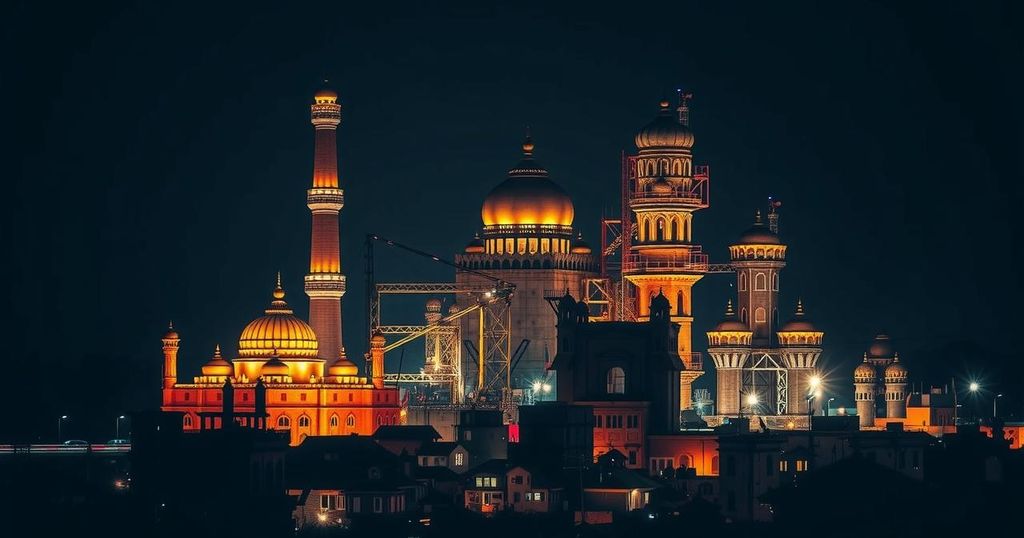Daily Briefing: Evaluating India’s Atmanirbhar Bharat Initiative and Political Dynamics
Today’s briefing highlights significant events including military intervention in South Korea, the mixed outcomes of India’s PLI scheme intended for job creation, ongoing China border dispute discussions, political maneuvering in Maharashtra after elections, strained ties between India and Bangladesh, and an intense chess championship match. It reflects the complexities of both domestic and international political landscapes impacting governance.
Good morning,
In a surprising turn of events, South Korea’s capital, Seoul, witnessed military helicopters and troops at the National Assembly as public defenders assisted legislators rushing to safety amid a declaration of martial law. Fortunately, swift action by lawmakers resulted in an overwhelming vote to rescind the martial law imposed by the President, giving rise to an impending impeachment crisis for him. The backdrop includes a robust opposition movement and the controversy surrounding a luxury handbag.
In today’s edition, we focus on India’s flagship Production-Linked Incentive (PLI) scheme, a cornerstone of the Atmanirbhar Bharat initiative aimed at improving private investments and generating employment opportunities. However, the scheme has presented mixed results in job creation. Our recent investigation highlighted that three sectors, specifically food processing, pharmaceuticals, and mobile phones, accounted for 75 percent of jobs created under the program in the past two to three years, while others lagged behind due to unique sectoral challenges.
In related news, External Affairs Minister S. Jaishankar confirmed India’s commitment to dialogue with China regarding border disputes, emphasizing the need to maintain the status quo. This marks his first remarks since a significant breakthrough in negotiations last October.
After winning decisively in the Maharashtra elections, the ruling alliance is now engaged in discussions regarding the chief ministerial appointment, highlighting the political maneuvering within the Bharatiya Janata Party and its coalition partners.
Additionally, tensions have arisen between India and Bangladesh, leading to the latter summoning the Indian High Commissioner over vandalism at its diplomatic mission in Tripura, a situation detailed in today’s podcast episode, which recounts the events that unfolded following the arrest of a Hindu monk.
In his weekly commentary, C. Raja Mohan addresses the implications of US President-elect Donald Trump’s trade policies for India, noting particularly the need for India to reevaluate its economic relationships in light of potential tariffs and trade disputes.
In a dramatic display at the World Chess Championship, reigning champion Ding Liren and the up-and-coming grandmaster D. Gukesh battled for five hours and twenty minutes, resulting in a draw. This encounter showcases the intensity and complexity of high-level chess matches.
Internally, discord persists within both the ruling and opposition alliances in parliament, with a recent controversy regarding seating arrangements exacerbating tensions. This infighting illustrates the ongoing political complexities that could impact governance moving forward.
That concludes today’s briefing. Until tomorrow.
The topic revolves around the political and economic landscape in India, with a focus on the government’s Atmanirbhar Bharat initiative, aiming for self-reliance and job creation through the PLI scheme. The socioeconomic dynamics include both opportunities for growth and significant challenges, particularly in job creation across various sectors. Additionally, external geopolitical factors influencing India’s relations with neighboring countries are discussed, highlighting the complexity of diplomatic engagement. The continued internal political debates reflect broader tensions within coalitions, impacting legislative efficacy and governance.
In conclusion, today’s briefing encapsulates significant political and economic developments in India, particularly regarding the efficacy of the PLI scheme in job creation, the ongoing geopolitical negotiations with China and Bangladesh, and the internal political strife faced by ruling and opposition alliances. These elements collectively underscore the dynamic challenges and opportunities within India’s current governance landscape as it pursues self-reliance and international cooperation.
Original Source: indianexpress.com








Post Comment